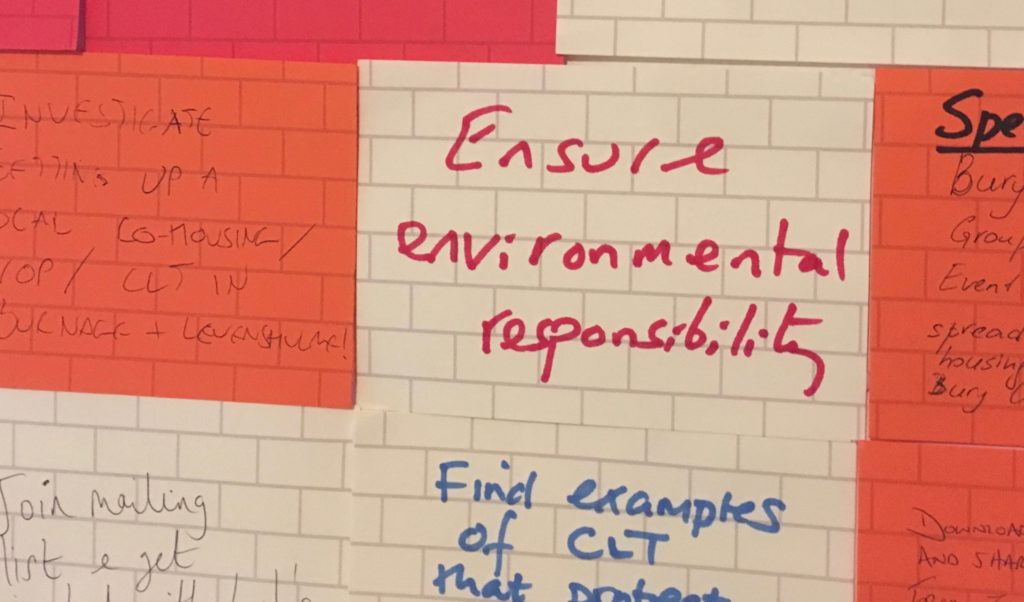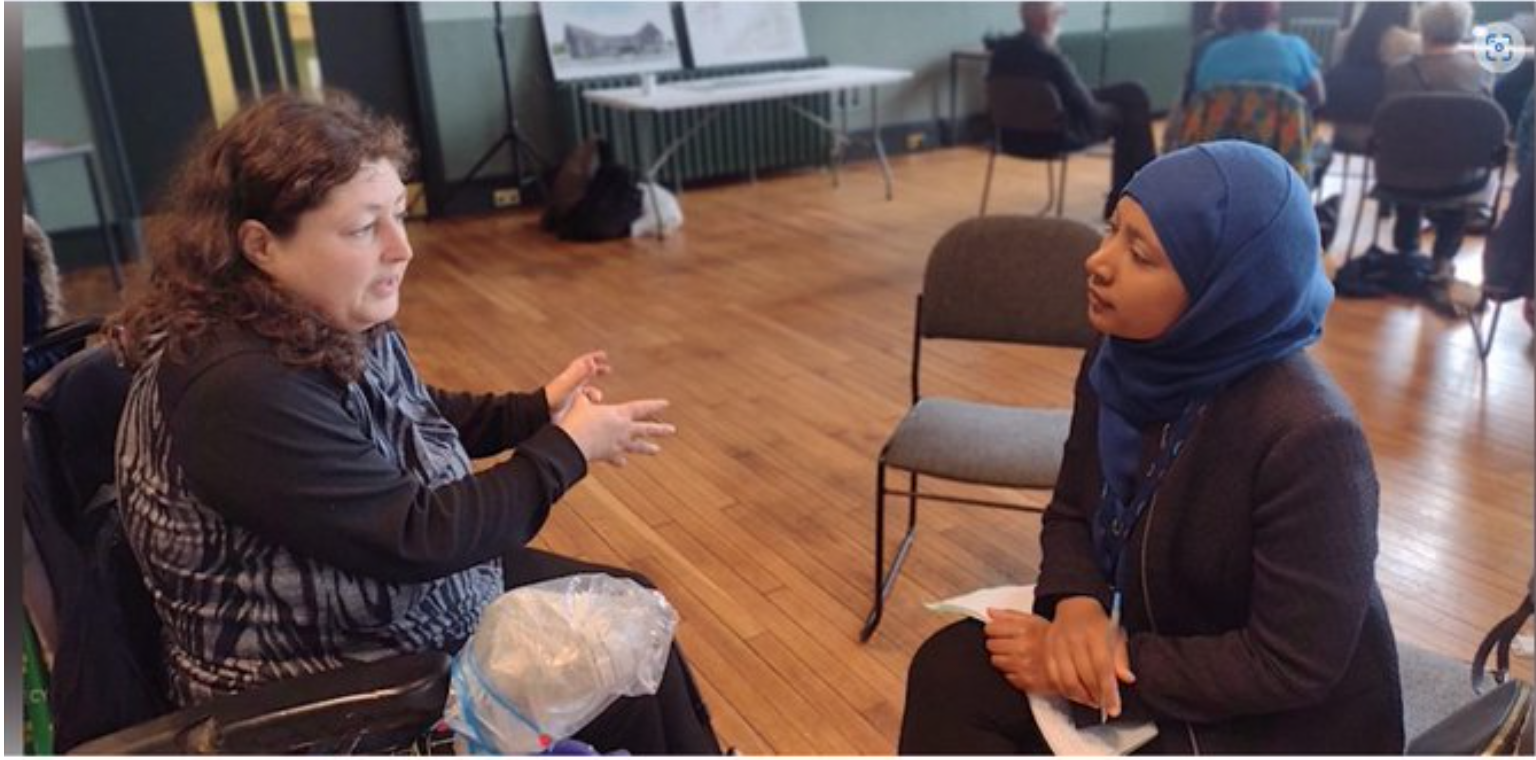By Housing Futures
What can community-led housing do for cities such as Greater Manchester, and what steps can activists, practitioners and policymakers take to support this? Richard Goulding discusses the findings and recommendations of the Housing Futures project.
Housing activists and media exposés have increasingly shone a spotlight onto Greater Manchester’s housing crisis. From a financialised city centre development model that fails to deliver affordability, to appalling conditions faced by homeless households, pressure is mounting to find new and better alternatives.
While concerns persist over the risks of speculative land deals in areas such as Ancoats and Collyhurst, recent announcements have signalled a change in tone, including 1,000 new social rented homes pledged by Manchester City Council, alongside another 2,000 houses split between shared ownership and ‘affordable rent’. If policymakers in the city-region intend a genuine shift, it is vital they commit to seriously working with communities in enabling them to challenge the housing crisis.
That’s why our new report examines the case for community-led housing in the city region, evaluating the sector’s potential as a vehicle for enabling low income communities to meet their housing needs and preserve affordability for future generations. The report, “What can community-led housing achieve for Greater Manchester?”, is the product of 12 months research by the Housing Futures partnership between Greater Manchester Housing Action and the University of Sheffield.
Benefits and opportunities
Our findings show the sector has much to offer Greater Manchester, retaining investment for community use and providing a resident-led model for urban redevelopment in cities such as Liverpool, London, and Leeds. Alongside opening up space for experiments in environmental living and opportunities for skills and confidence building, the sector can also help foster wider social enterprise, enabling it to have wider impacts beyond its currently small size.
The piecemeal nature of community-led housing means it cannot on its own substitute for the need for large scale public housebuilding. But it has an essential role to play in enabling specific groups such as low income residents or people seeking greater independence in old age to help take ownership and control over their housing circumstances. Enabling support for such groups can build on Greater Manchester’s existing sector, which includes several housing co-operatives alongside Tenant Management Organisations and other forms of mutual social housing providers across the city-region.
Community and voluntary groups, policymakers, and key partners such as housing associations all have a part to contribute in fostering the grassroots control and popular mobilisation needed for people in housing need to take a genuine leadership role. While necessarily long term, and requiring that policymakers respect the ability of community groups to identify their own goals, such support can help the sector create a lasting transformation in Greater Manchester’s housing landscape.
Saving public land
Our research found that there are multiple ways through which local policymakers can support the sector, many of which have already been tried and tested in other cities. These include providing dedicated officer time, creating favourable planning frameworks, and tailoring opportunities such as Greater Manchester’s £300m Housing Investment Fund to the specific needs of community-led housing groups.
One crucial issue facing most community-led housing groups is access to land and real estate. The sell-off of surplus public sector land to plug budget shortfalls has attracted growing criticism, with academic research demonstrating that private developers are failing to build affordable homes. Our report recommends that where appropriate, local authorities and housing associations should assist local groups in identifying land for genuinely affordable community use. National support for this process is also available through organisations like the New Economics Foundation.
Within its newly released housing strategy, Manchester City Council has announced plans to support three pilot community-led housing projects, delivering a total of 30 affordable homes. While a welcome step, the use of public land in joint ventures such as Manchester Life or the Northern Gateway has become a contentious issue in the city. In this context, it is important that activists are calling for a public debate and greater transparency over land privatisation by local government.
Creating support networks: the need for an ‘enabling hub’
Currently, Greater Manchester lacks a dedicated body to support community-led housing by offering access to advice, expertise, and assistance in identifying land. This is changing, with discussions underway to establish an ‘enabling hub’ for the city-region. By connecting new and existing projects with the support they need, a hub can help community groups overcome barriers and better ensure their longevity.
The importance of this has been recognised within the Greater Manchester Combined Authority (GMCA), with some proceeds of the Housing Investment Fund used to support initial work for establishing a hub, with further support subject to agreement by the city-region’s 10 local authorities.
Speaking at our on Saturday 8 December, Salford City Mayor and GMCA housing lead Paul Dennett fully endorsed the Housing Futures recommendations for the new enabling hub including that it should be independent of local government. In return, he asked that any hub take a strategic overview in connecting different co-operatives and community housing projects across Greater Manchester as a whole, rather than focusing on one part of the city region.
In addition, to ensure the benefits of the sector are genuinely available to the people who need it most, the Housing Futures research recommends that a hub undertakes dedicated work to create awareness about the possibilities of community-led housing in low income communities, and, where required, the capacity to lead on establishing community provision. Alongside training in development and housing management, this should include the promotion of peer support and learning between different projects across neighbourhoods, and the fostering of a co-operative ethos to help sustain long-term participation and inclusiveness.
As momentum for community-led housing grows across Greater Manchester, the need for strengthening the emerging network of support across the city-region is vital in protecting the sector’s success. Housing Futures will now transition from a research partnership into a working group within Greater Manchester Housing Action, dedicated to working in partnership to see the enabling hub established and sharing knowledge about community-led housing.
Housing Futures’ work over the past 12 months has shown the power of the collective knowledge and expertise of the groups willing to engage in creating housing alternatives. If groups with the passion and interest to create new solutions for their cities and neighbourhoods now link up to promote community-led housing, our research shows the sector has the potential to build lasting change in Greater Manchester.
20 December 2018





